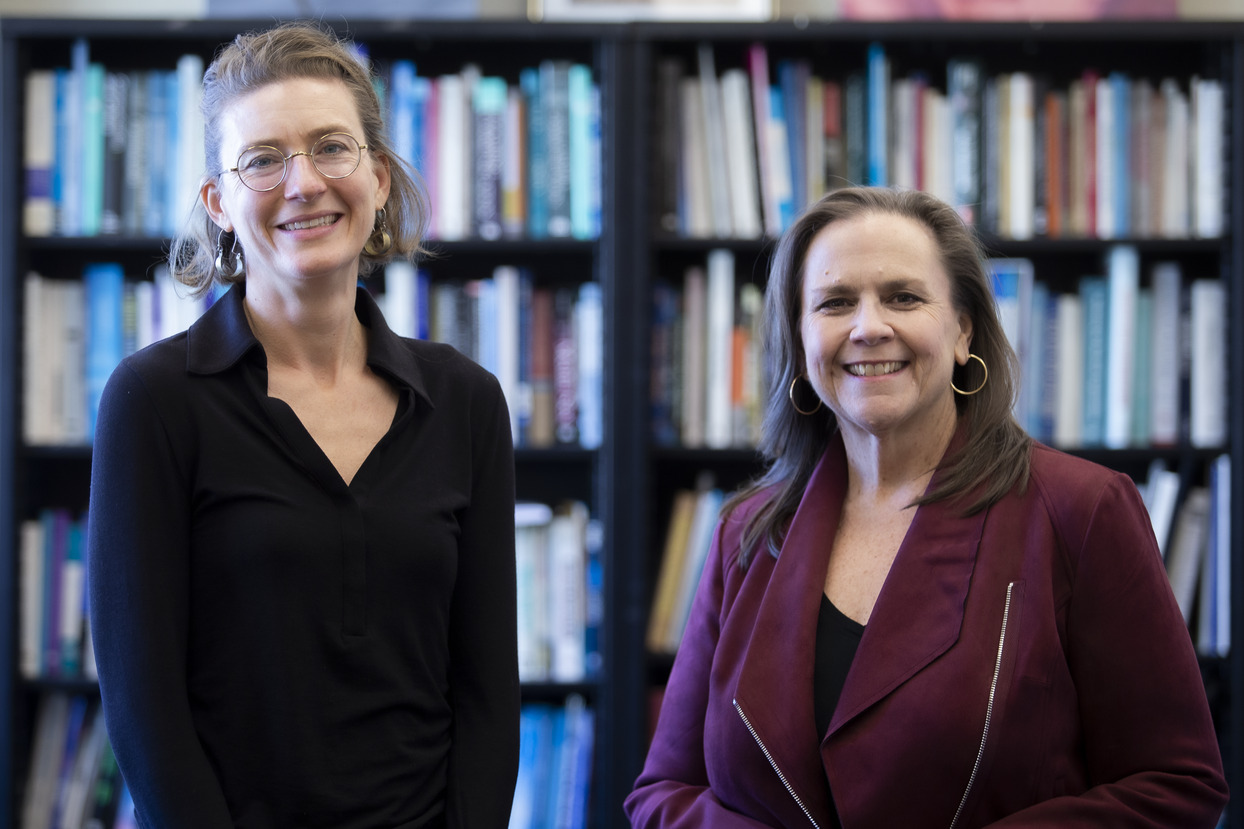Following the outbreak of COVID-19 in 2020, scientists made history by working swiftly to develop a vaccine and distribute it to the masses. To keep their campuses safe and stop the spread of the virus, many colleges and universities introduced policies that required students to get vaccinated.
As colleges and universities continue to grapple with evolving public health challenges, understanding students’ perspectives on vaccination remains critical. Three recent studies from researchers at Temple’s College of Public Health shed new light on student knowledge of vaccine policies and how their perceptions of vaccine mandates influence their willingness to get vaccines.
The most recent of the three studies, titled “University students’ knowledge, perceptions, and sources of information on routinely recommended vaccines" builds upon two prior studies published earlier this year: “COVID-19 vaccine perspectives and uptake among university students three years into the pandemic” and “Perceptions of vaccine requirements among students at four Pennsylvania universities.”
All three studies were authored by Professor of Social and Behavioral Sciences Sarah Bauerle Bass and Associate Professor of Social and Behavioral Sciences Susannah Anderson, along with researchers from the Vaccine Education Center at the Children’s Hospital of Philadelphia. Together, these studies offer a comprehensive look at how university students view vaccines, including but not limited to the COVID-19 vaccine, and how communication strategies play a role in shaping health outcomes.
The three studies used data collected from undergraduate, graduate and professional students from four universities in Pennsylvania (Temple University, Penn State University, Duquesne University and Wilkes University) using a confidential online survey. Survey questions addressed students’ knowledge of COVID-19 vaccines, how they perceive the importance of COVID-19 vaccines and mandates, the number of doses of COVID-19 vaccine they had received, where they received their vaccinations, whether they had received the influenza vaccine, and which sources of information used to make decisions about the COVID-19 vaccine.
The findings of “Perceptions of vaccine requirements among students at four Pennsylvania universities” indicate that students have a high level of support for vaccine requirements but were lacking awareness of which vaccines their universities required. “One of the most striking findings in this paper is that students were often unaware of which vaccines were required at their universities,” said Anderson. “The rules vary from one institution to another, which might explain why students don’t have a clear understanding of the requirements.”
The study also revealed that students have an increased likelihood of getting a vaccine if they believed that their university required specific vaccines, highlighting the power of the perception of mandates over actual mandates. “The mandate itself didn’t directly change vaccination rates. But if students believed that a vaccine was required, they were more likely to get vaccinated,” Anderson continued.
“COVID-19 vaccine perspectives and uptake among university students three years into the pandemic” also studied students’ attitudes towards COVID-19 vaccination, but focused more on vaccine uptake and sources of information about vaccines.
The study reveals variations in vaccination rates based on student demographics, with higher vaccine uptake rates among older students, females, and those in non-business majors. The study also reveals a decrease in COVID-19 booster uptake compared to the initial vaccination shot. “Our earlier study showed that while most students were fully vaccinated, the booster uptake was low,” said Bauerle Bass. “The challenge now is to improve awareness, particularly for periodic boosters, and to ensure that students have accurate information about vaccine requirements.”
“University students’ knowledge, perceptions, and sources of information on routinely recommended vaccines” also concluded that students want and need more effective vaccine education from trusted sources like healthcare providers, tailored to different groups of students.
One of the most important takeaways from the studies is that communication shapes student attitudes and behaviors regarding vaccines, and that there is a need for clear and consistent messaging from universities about vaccine policies. According to Anderson, “Clear messaging using multiple communication channels is essential. Many students are overwhelmed with information, so universities need to use a variety of methods—emails, social media, videos and in-person discussions—to ensure the message gets through.”
Anderson and Bauerle Bass also noted that personalized interactions are time-consuming, but effective. Bauerle Bass shared a personal anecdote about the challenge of reaching students: “Emails alone don’t work—my daughter, for example, doesn’t even respond to my emails unless I text her multiple times. With today’s generation, you need to meet them where they are, whether that’s on TikTok, through text or in class.”
The studies also highlighted the need for tailored messaging based on the characteristics of students’ lives, such as their major, gender and vaccine status. “For some students, the message that vaccination is important for protecting their family or community may resonate. But for others, particularly those who are more individualistic, emphasizing personal protection—‘This will help you stay safe’—may be more effective,” said Bauerle Bass.
Overall, the studies can help universities determine the best way to communicate important information about vaccines and other public health issues to students. Anderson concludes that “research shows that students are generally supportive of vaccination, but there are gaps in knowledge and trust that need to be addressed.
“Universities can make a real impact by improving how they communicate vaccine requirements and the benefits of vaccination, particularly as we continue to navigate the COVID-19 pandemic and future public health challenges,” she added.
Dec. 17, 2024

Associate Professor of Social and Behavioral Sciences Susannah Anderson and Professor of Social and Behavioral Sciences Sarah Bauerle Bass are faculty at Temple's College of Public Health.
Photo by Ryan S. Brandenberg
